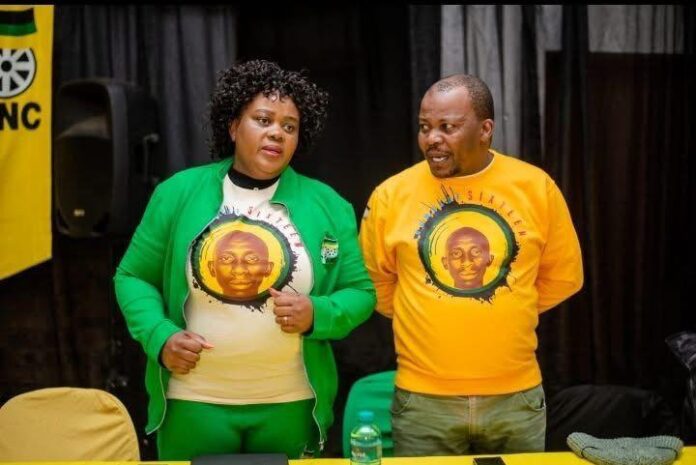Justice Minister Mmamoloko Kubayi’s chief of staff has made the cut in the race to become the secretary of the governing ANC in the Johannesburg region of Gauteng, preliminarily setting up a contest against the incumbent, Sasabona Manganye.
Lebohang Tshabalala, commonly known as “Mshengu”, obtained 27 branch nominations from party branches ahead of the looming regional elective conference, while Manganye led the pack with 63 nominations from a total of 108 branches.
A spanner in the works, according to ANC lobbyists, is that 24 of the branches that nominated Manganye have submitted disputes of their meeting outcomes, which could tilt the scales.
SG confirms disputes
However, according to a preliminary report by ANC secretary general Fikile Mbalula, dated October 30, there are only nine disputes, consisting of issues such as incorrect data, synchronisation problems, meeting disruptions and membership-related challenges.
Conversely, Mbalula’s report refers to 24 branches disqualified during the verification process, including those that were disqualified due to issues like “fraudulent scanning, ID harvesting, violence, or failure to meet quorum”.
While Manganye – also the party’s former regional spokesperson – has a dominant public profile that gives him a head start, Tshabalala’s #DubulaDarkie campaign aims to win appeal through a strategy to “revitalise the ANC, restore the party’s integrity, reconnect with communities, and empower members to deliver on the party’s mission of combating inequality, poverty, and unemployment.”
Morero in the pound seats
For the chairperson post, Sunday World understands that Johannesburg mayor Dada Morero leads the nominations with 55 branches, but chief contender Loyiso Masuku, the Joburg finance MMC, is not far behind with 46 nominations.
ANC branches with a minimum of 100 members are generally allowed to send two delegates to the conference and an additional delegate for every 100 members thereafter. The biggest Johannesburg branches are in Diepsloot and Meadowlands, and the smallest are three special branches in areas around Linksfield, Melville and Linden.
Lobbyists said this week that the real battle going ahead was to win the hearts of individual delegates,” suggesting that even where a candidate would have received the most nominations, it was not a foregone conclusion that victory was certain.
Adding to the drama, most of the candidates have access to state largesse, which enables patronage, amid claims that delegates had been offered vegetable packs, jobs and even alcoholic beverages to influence support.
A source did not rule out Phosane Mnqibisa, who managed nine branch nominations and could not meet the threshold. Joburg mayoral spokesperson Chris Vondo also got 10 nominations, but their supporters could still lobby for them on the conference floor, where 25% backing from the voting delegates could get them back on the ballot.
Us and them
The leadership contest has also been framed as the battle between the north and south branches of Johannesburg. Supporters of the south branches alleged that most of their counterparts in the north were not natives of Johannesburg but migrants from other provinces who settled in areas like Midrand.
“The south boasts leaders who were born and bred in Soweto, and those are the people who grew up understanding the challenges of our people in the region,” said a source.
The province’s regional conferences, which were supposed to be completed by the end of August, have been mired in delays. Only Ekurhuleni has managed to elect its leaders. The latest deadline for the others to convene this weekend, but even that is now under threat, with Morero heavily involved in the G20 summit.



